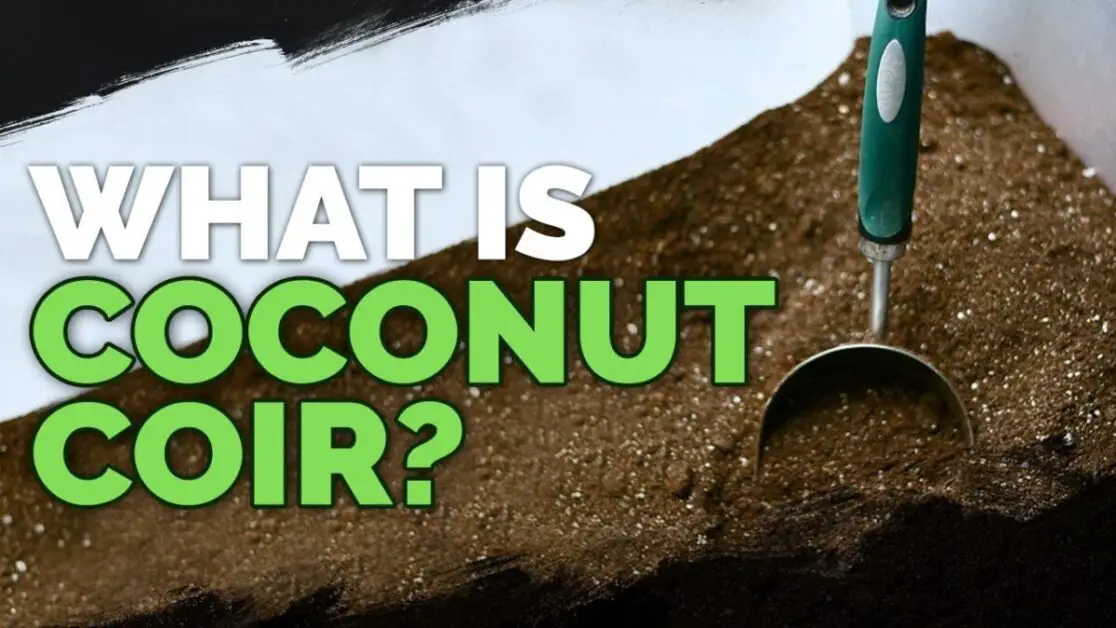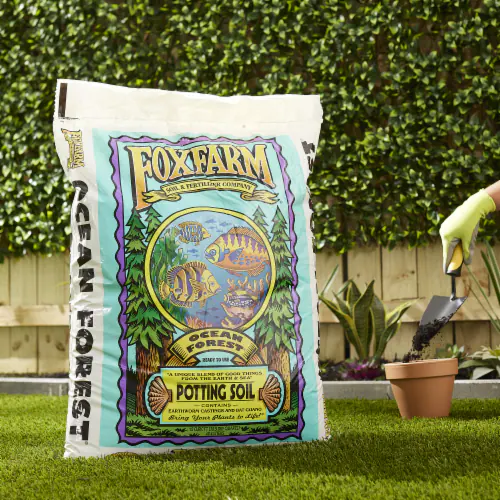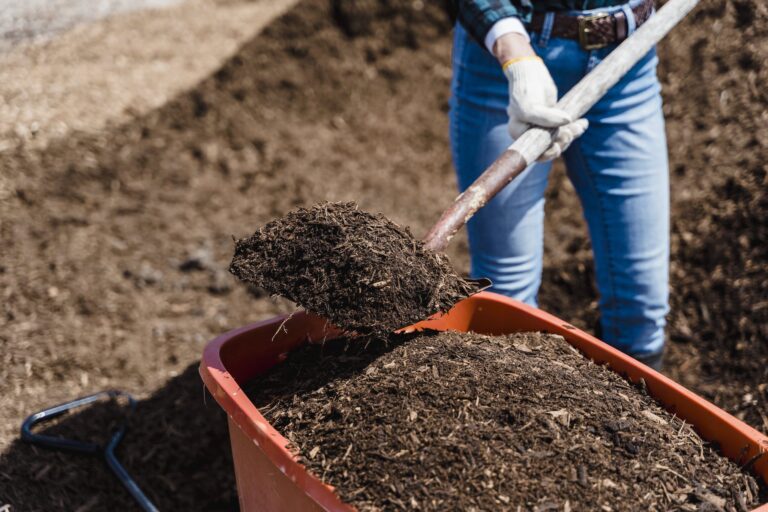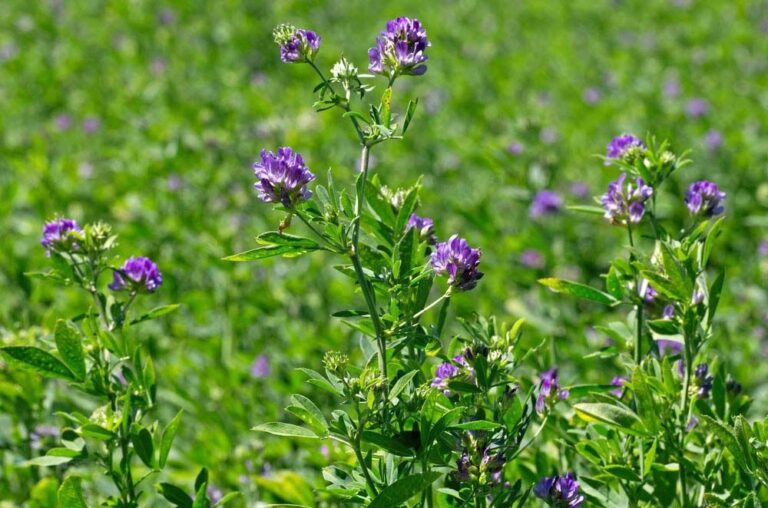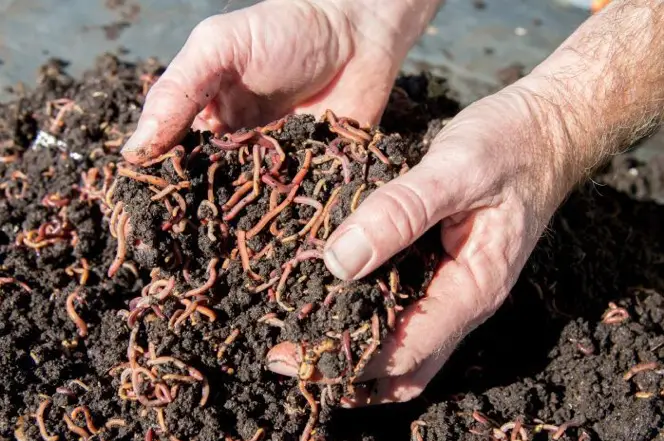Coconut Coir: What It Is, Why You Need It, How to Get It
Table of Contents
Understanding the Composition of Coconut Coir
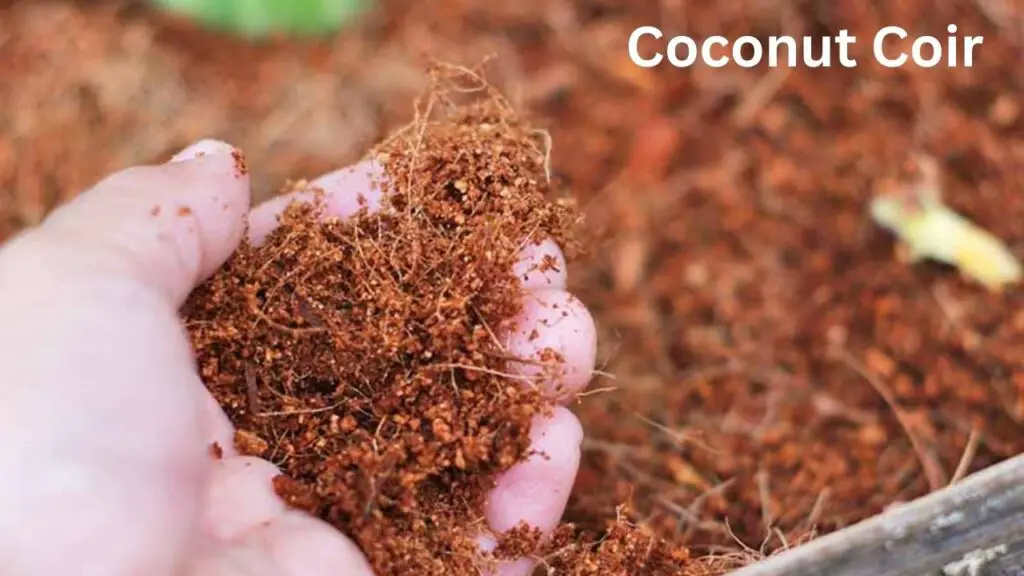
Coconut coir, also known as coco peat, is a versatile and sustainable material that has gained significant popularity in gardening and agriculture. Understanding its composition is crucial to harnessing its full potential for plant growth and soil improvement.
Coconut coir is derived from the fibrous outer husk of coconuts. It is a natural byproduct of the coconut industry, making it an eco-friendly alternative to conventional soil amendments. Composed primarily of lignin and cellulose, coconut coir is rich in organic matter, providing essential nutrients and beneficial microorganisms for plants.
Furthermore, coconut coir exhibits exceptional water-holding capacity, allowing it to hold up to 10 times its weight in water. This property not only ensures adequate hydration for plants but also promotes optimal root development and nutrient uptake. In addition, coconut coir is known for its outstanding aeration and drainage capabilities, creating a well-balanced growing medium for plants. Its fibrous structure enhances air circulation and prevents the soil from becoming waterlogged, ultimately preventing root rot and other water-related issues.
Understanding the composition of coconut coir is the first step to harnessing its numerous benefits. By utilizing its unique characteristics, gardeners and agriculturists can enhance plant growth, improve soil quality, and contribute to sustainable and environmentally-friendly practices. But how exactly does coconut coir benefit gardening and agriculture? Let’s explore further.
The Benefits of Using Coconut Coir in Gardening and Agriculture
Coconut coir has gained popularity in gardening and agriculture due to its numerous benefits and versatile nature. One of its primary advantages is its excellent water retention capabilities. Unlike traditional soil mixtures, coconut coir can retain a significant amount of moisture while still providing adequate drainage. This ensures that plants receive the necessary hydration without the risk of waterlogging or root rot.
Furthermore, coconut coir exhibits exceptional soil aeration properties, promoting healthy root growth and preventing compaction. Its fibrous texture creates air pockets within the soil, facilitating the exchange of gases and nutrients between the roots and the surrounding environment. This enhanced aeration not only improves overall plant health but also increases the efficiency of fertilizers by enabling better nutrient absorption.
In addition to its water retention and aeration benefits, coconut coir also acts as a natural pest and weed control solution. It contains lignin, a complex organic compound that deters insects and suppresses weed growth. By incorporating coconut coir into the soil, gardeners and farmers can reduce the need for chemical pesticides and herbicides, resulting in a more eco-friendly and sustainable approach to cultivation.
The inherent sustainability of coconut coir further strengthens its appeal as an alternative to conventional gardening and agricultural practices. Made from the fibrous husks of coconuts, which are typically discarded as waste, coconut coir provides an eco-friendly solution to repurpose this byproduct. By utilizing coconut coir in various applications, not only is waste reduced, but the demand for other non-renewable resources, such as peat moss, is also minimized.
As we continue to explore the benefits and applications of coconut coir, its importance and potential in gardening and agriculture become increasingly evident. From improving water retention and soil aeration to serving as a natural pest control method, coconut coir offers a sustainable and effective solution for enhancing crop yields and optimizing plant growth.
Exploring the Versatility of Coconut Coir in Various Applications
Coconut coir, derived from the fibrous outer husk of the coconut, is a versatile material that finds its applications in various industries. From agriculture to horticulture, from construction to textiles, coconut coir has proved its worth in a multitude of ways.
In the realm of gardening, coconut coir is widely used as a growing medium in hydroponic systems. Its ability to retain moisture while providing adequate aeration to plant roots is unmatched. This unique combination of qualities makes coconut coir an ideal substrate for growing various crops, ranging from vegetables to ornamental plants. Additionally, coconut coir can be used in traditional soil-based gardening as a soil conditioner, improving the structure, water-holding capacity, and nutrient content of the soil.
Beyond the realm of gardening and agriculture, coconut coir has found its way into numerous other applications. In the construction industry, it serves as a durable and eco-friendly alternative to traditional materials like concrete and plastic. Coconut coir ropes and mats are used for erosion control, providing natural protection to riverbanks and slopes. The textile industry is also embracing coconut coir as a sustainable alternative to synthetic fibers, incorporating it into clothes, upholstery, and even carpets. The versatility of coconut coir in various applications highlights its potential to contribute to a more sustainable and environmentally friendly future.
A Sustainable Alternative: How Coconut Coir Helps the Environment
Coconut coir, derived from the fibrous husk surrounding the coconut, is emerging as a sustainable alternative with numerous environmental benefits. Unlike conventional peat moss, which is harvested from delicate bog ecosystems, coconut coir is a byproduct of the coconut industry and utilizes a waste material that would otherwise go to landfill. This eco-friendly option reduces the demand for unsustainable practices and promotes the efficient use of resources. By opting for coconut coir, gardeners and agricultural enthusiasts can actively contribute to reducing environmental degradation.
The environmental advantages of coconut coir extend beyond its sustainable sourcing. Unlike synthetic materials, coconut coir is biodegradable, meaning it can naturally break down over time without leaving harmful residues in the environment. When incorporated into soil, coconut coir enriches its organic matter content, enhancing its ability to retain water and nutrients, thereby reducing the need for synthetic fertilizers and excessive irrigation. Additionally, coconut coir acts as a natural weed suppressant, reducing the need for chemical herbicides. By selecting coconut coir, gardeners and farmers are making a conscious choice to minimize their ecological footprint and nurture a healthier, more sustainable environment.
Examining the Nutritional Properties of Coconut Coir for Plant Growth
Coconut coir, also known as coconut fiber, is an increasingly popular medium used in gardening and agriculture due to its impressive nutritional properties that promote plant growth. Derived from the fibrous husk surrounding the coconut, coconut coir offers several key nutrients that can benefit plants in various ways.
One of the primary nutritional benefits of coconut coir is its high potassium content. Potassium is an essential macronutrient for plants, playing a critical role in photosynthesis, protein synthesis, and water regulation. By incorporating coconut coir into the growth medium, plants can experience improved water uptake efficiency and enhanced resistance to drought stress. This nutrient also contributes to the overall health and vigor of plants, leading to increased yields and better-quality produce.
In addition to potassium, coconut coir contains other essential nutrients such as magnesium, calcium, and phosphorus, which are vital for plant growth and development. These nutrients, when properly balanced, can improve root development, strengthen the plant’s immune system, and enhance overall plant structure. The presence of micronutrients like iron, zinc, and manganese further enriches coconut coir, allowing for comprehensive nutrition that supports plants throughout their growth cycles.
Furthermore, coconut coir exhibits a unique ability to retain and release nutrients, creating an optimal environment for plants. This natural ability of coconut coir to hold onto nutrient ions until required by the plants ensures a consistent and steady nutrient supply, helping to prevent nutrient deficiencies or imbalances. By acting as a reservoir for nutrients, coconut coir fosters healthy root development and sustains plants by offering a continuous source of nutrition.
The nutritional properties of coconut coir make it an excellent choice for various types of plants, including ornamentals, vegetables, fruits, and herbs. Whether used in traditional soil gardening, hydroponic systems, or as a component of potting mixes, coconut coir provides a reliable and sustainable medium that supports robust plant growth and thriving yields. With its rich nutrient profile, coconut coir opens up new possibilities for gardeners and farmers seeking natural and effective ways to nourish their plants.
The Water Retention Capabilities of Coconut Coir: A Game-Changer for Water Conservation
Coconut coir, a natural and sustainable byproduct of the coconut industry, has gained recognition for its remarkable water retention capabilities, making it a game-changer in water conservation efforts. This eco-friendly material has the ability to retain water up to nine times its weight, ensuring that plants receive a steady supply of moisture without excessive watering.
One of the key advantages of coconut coir is its ability to hold water for extended periods, reducing the frequency of irrigation and minimizing water wastage. This feature is particularly beneficial in areas prone to drought or regions with limited water resources. With its high water holding capacity, coconut coir acts as a moisture reservoir in the soil, allowing plants to access moisture even during dry spells. Moreover, this water retention ability helps in preventing soil erosion, as the coir fibers keep the soil structure intact and resistant to erosion caused by heavy rain or wind.
Additionally, the water retention capabilities of coconut coir contribute to better plant health and growth. By ensuring a continuous supply of moisture, coconut coir helps regulate soil moisture levels, preventing water stress in plants. This results in stronger root systems, improved nutrient uptake, and enhanced overall plant vitality. Moreover, the ability of coconut coir to hold onto water also enables better nutrient retention, reducing leaching and ensuring that plants have access to vital nutrients for longer periods.
In conclusion, the water retention capabilities of coconut coir offer a significant advantage in water conservation efforts. With its ability to hold water efficiently, coconut coir helps minimize water usage, combat drought conditions, and promote healthy plant growth. Incorporating this environmentally friendly material into gardening and agriculture practices can indeed be a game-changer, not only for water conservation but also for sustainable and efficient plant cultivation.
How Coconut Coir Enhances Soil Aeration and Drainage
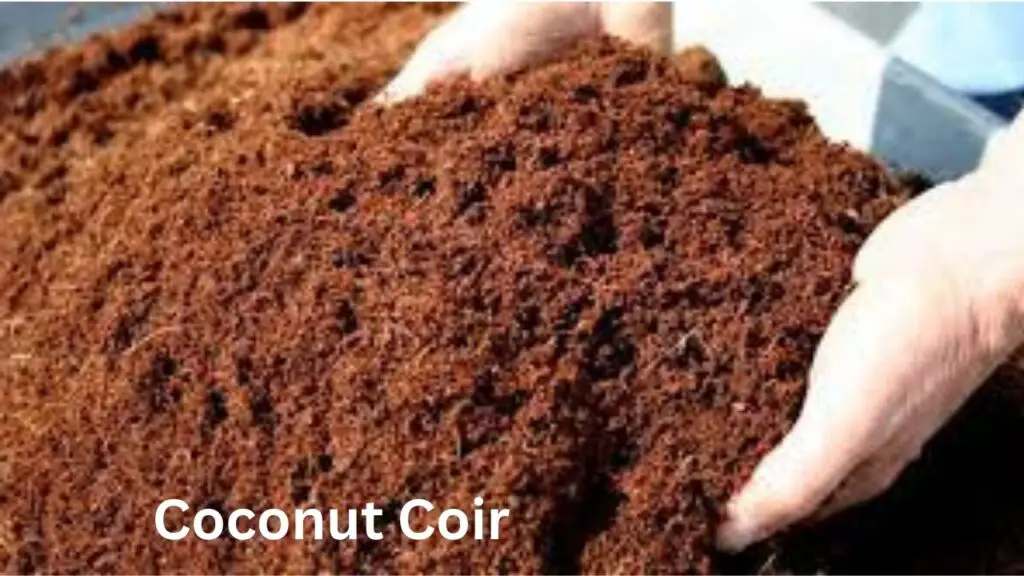
Soil aeration and drainage are crucial factors in maintaining healthy and thriving plants. Proper aeration allows roots to access oxygen and nutrients, while effective drainage prevents waterlogging and root rot. In this regard, coconut coir serves as a fantastic solution for enhancing soil aeration and drainage in gardening and agriculture.
One of the key benefits of coconut coir is its high porosity. This attribute allows it to retain air pockets within the soil, promoting a healthy exchange of gases between the roots and the surrounding environment. As a result, plants have access to an ample supply of oxygen, which is essential for vital processes like respiration and nutrient uptake. Additionally, coconut coir’s porosity helps prevent compaction, ensuring that the soil remains loose and well-drained.
Furthermore, coconut coir has excellent water-holding capacity. Despite its ability to retain moisture, it does not become waterlogged like traditional peat-based soil amendments. The fibrous structure of coconut coir facilitates the movement of water throughout the soil profile, allowing excess water to drain away efficiently. This characteristic is particularly beneficial in areas with heavy rainfall or in irrigation systems, as it helps prevent waterlogging and protects plants from the detrimental effects of overwatering.
In summary, incorporating coconut coir into your gardening or agricultural practices can significantly improve soil aeration and drainage. Its high porosity promotes root health by providing adequate oxygen levels, while its water-holding capacity ensures the optimal balance between moisture retention and drainage. By utilizing coconut coir, you can create an ideal environment for your plants to thrive and flourish.
Coconut Coir as a Pest and Weed Control Solution
Coconut coir is not only an excellent growing medium for plants, but it also serves as an effective solution for pest and weed control. One of the key benefits of coconut coir is its ability to naturally repel certain pests and inhibit weed growth.
The high lignin content in coconut coir acts as a deterrent to pests such as aphids, mites, and fungus gnats. These pests are less likely to infest and damage plants grown in a coconut coir substrate compared to traditional soil. Additionally, coconut coir’s physical structure helps create an unfavorable environment for weed growth, reducing the need for manual weeding or chemical herbicides.
Coconut coir also promotes the growth of beneficial microorganisms, such as mycorrhizal fungi, which form symbiotic relationships with plant roots and aid in nutrient uptake. These microorganisms help strengthen plants’ natural defenses against pests and diseases, further reducing the reliance on chemical pesticides.
By using coconut coir as a pest and weed control solution, gardeners and agriculturists can minimize the environmental impact of their practices. Coconut coir is a natural and sustainable alternative to conventional methods, as it avoids the use of harmful chemicals and reduces the need for excessive watering or fertilization. In turn, this helps maintain ecological balance and supports a healthier and more resilient ecosystem.
Exploring the Durability and Longevity of Coconut Coir Products
Coconut coir products have gained recognition in the gardening and agricultural industries for their exceptional durability and longevity. Unlike other organic materials, coconut coir has a natural resistance to decay and decomposition, making it an excellent choice for long-lasting applications.
One of the primary reasons for the durability of coconut coir products is their high lignin content. Lignin is a complex compound found in plant cell walls that provides structural support and protection against external elements. This innate strength of coconut coir allows it to withstand adverse weather conditions, extreme temperatures, and microbial attack, ensuring a prolonged lifespan in various settings.
Additionally, coconut coir products undergo rigorous processing techniques that enhance their durability. The fibers are meticulously extracted from the coconut husks, then cleaned, dried, and sometimes treated to remove any impurities or residual salts. This thorough manufacturing process not only ensures the quality of the final product but also contributes to its extended lifespan, making coconut coir an excellent investment for gardening and agricultural applications.
Moreover, researchers and horticultural experts have conducted numerous studies to assess the longevity of coconut coir products. These investigations have consistently demonstrated the material’s ability to retain its physical properties and structural integrity over time. These findings not only support the claims of coconut coir’s durability but also provide gardeners and agriculturists with concrete evidence of its long-term performance.
As we explore the durability and longevity of coconut coir products further, it becomes evident that incorporating this versatile material into gardening and agricultural practices offers not only immediate benefits but also a lasting investment. By investing in coconut coir, enthusiasts can ensure the longevity of their gardening endeavors while contributing to a sustainable and eco-friendly approach. Thus, it is imperative to understand the immense potential of coconut coir products and harness their durability for long-term success in gardening and agriculture.
Different Types of Coconut Coir: Which One to Choose for Your Needs
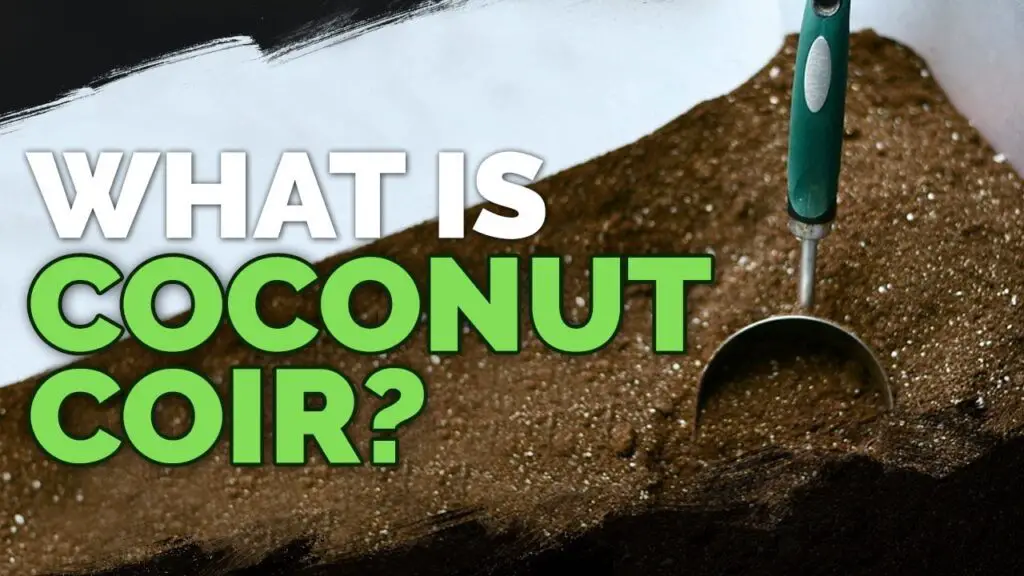
Coconut coir, also known as coco peat, is a versatile and sustainable alternative to traditional soil mediums in gardening and agriculture. When it comes to choosing the right type of coconut coir for your specific needs, it’s important to understand the different options available.
One of the main considerations when selecting coconut coir is the level of processing it has undergone. There are three main types: raw coconut coir, washed coconut coir, and buffered coconut coir.
Raw coconut coir is the least processed option and retains its natural properties, but it may contain high levels of salts and other impurities that can be detrimental to plant health. Washed coconut coir, on the other hand, has been thoroughly rinsed to remove excess salts and impurities, making it a cleaner and more suitable option for most plants. Finally, buffered coconut coir has been treated with calcium to neutralize any potential pH imbalances, creating a more stable and plant-friendly medium.
When choosing the right type of coconut coir, consider the specific needs of your plants and the level of control you want over the growing environment. If you’re working with sensitive plants or using hydroponic systems, washed or buffered coconut coir may be the best choice. However, if you’re looking for a more cost-effective option and have the means to manage the soil pH and nutrient levels, raw coconut coir can be a viable option. Ultimately, understanding the different types of coconut coir and their benefits will help you make an informed decision that best suits your gardening or agricultural needs.
Step-by-Step Guide: How to Source High-Quality Coconut Coir
Coconut coir is a versatile and sustainable material that has gained popularity in gardening and agriculture due to its beneficial properties. However, in order to reap the benefits of coconut coir, it is important to source high-quality products. Here is a step-by-step guide on how to find reliable sources of coconut coir:
1. Research reputable suppliers: Start by conducting thorough research to identify reputable suppliers of coconut coir. Look for companies that have a good reputation in the industry and a track record of providing high-quality products. You can refer to industry publications, online forums, and gardening communities for recommendations and reviews.
2. Consider certifications and quality standards: When sourcing coconut coir, it is essential to ensure that the product meets certain quality standards. Look for suppliers that adhere to certifications such as ISO 9001:2015 or recognized industry standards like the RHP certification for horticultural substrates. These certifications signify that the coconut coir has gone through rigorous testing for quality and consistency.
3. Request product samples: Before making a bulk purchase, request product samples from potential suppliers. This will allow you to assess the quality, texture, and moisture content of the coconut coir. Additionally, you can conduct tests to determine the pH level and electrical conductivity, which are important factors for plant growth.
4. Evaluate the sourcing process: It is important to know how the coconut coir is sourced. Look for suppliers that have a transparent and sustainable sourcing process. This ensures that the coconuts used for coir production are obtained from ethical and environmentally responsible practices.
Remember, sourcing high-quality coconut coir is crucial for achieving optimal results in gardening and agriculture. By following these steps and being diligent in your research, you can find reliable suppliers that offer top-notch coconut coir products.
Understanding the Importance of Proper Preparation and Storage of Coconut Coir
Proper preparation and storage of coconut coir is crucial to ensure its effectiveness and longevity for gardening and agricultural purposes. Before using coconut coir, it is important to soak it in water to remove excess salts and make it more suitable for plants. This process also helps to expand the coir, increasing its volume and making it easier to work with. The soaking time can vary depending on the type of coir and its initial composition, but generally, it is recommended to soak it for a few hours or overnight.
After soaking, it is important to squeeze out any excess water from the coir to achieve the desired moisture level. This step is crucial to prevent waterlogging and ensure proper drainage. Additionally, it is advisable to mix the coconut coir with other organic materials, such as compost or vermicompost, to enhance its nutrient content. This will provide plants with essential minerals and promote healthy growth.
Proper storage of coconut coir is equally important to maintain its quality. It is recommended to store it in a cool and dry place, away from direct sunlight and moisture. Exposure to heat and humidity can lead to the growth of mold and fungi, which can adversely affect the coir’s performance and introduce harmful organisms to the garden or farm. By following these practices, gardeners and farmers can maximize the benefits of coconut coir and ensure its long-term efficacy in various applications.
Certainly! Here’s a table with information about coconut coir:
| Aspect | Details |
|---|---|
| Source | Derived from the fibrous husk (coir) of coconuts. |
| Composition | Mostly composed of coconut fiber, but also contains coconut pith and coconut dust. |
| Texture | Fine, soil-like texture that retains moisture well. |
| pH Level | Generally pH-neutral to slightly acidic (5.5 – 6.8), providing a good starting point for most plants. |
| Water Retention | Excellent water retention capacity, reducing the frequency of watering. |
| Aeration | Promotes good aeration due to its fibrous structure, preventing soil compaction. |
| Nutrient Content | Low in nutrients. Often used as a substrate for hydroponic systems or blended with other amendments for potted plants. |
| Eco-Friendly | Renewable and environmentally friendly, as it is a byproduct of coconut processing. |
| Sustainability | Coconut coir is a sustainable alternative to peat moss, which is not a renewable resource. |
| Uses | – Soil amendment to improve structure and water retention. – Growing medium for container plants. – Hydroponic growing substrate. – Bedding material for worm bins. |
| Compression | Comes in compressed blocks or bricks that expand when soaked in water. |
| Disposal | Biodegradable and can be composted after use. |
| Availability | Widely available in gardening stores and online. |
| Preparation for Use | Soak the compressed coir block in water to expand before use. |
| Common Products | – Coir bricks or blocks. – Coir pots and liners. – Blended potting mixes with coir. – Coir-based soil amendments. |
| Challenges | May require additional fertilization due to its low nutrient content. |
| Benefits | – Sustainable alternative to peat moss. – Retains moisture while providing good drainage. – Environmentally friendly and renewable. |
This table provides an overview of the key aspects of coconut coir, highlighting its composition, uses, benefits, and considerations.
Practical Tips for Using Coconut Coir in Gardening and Agriculture
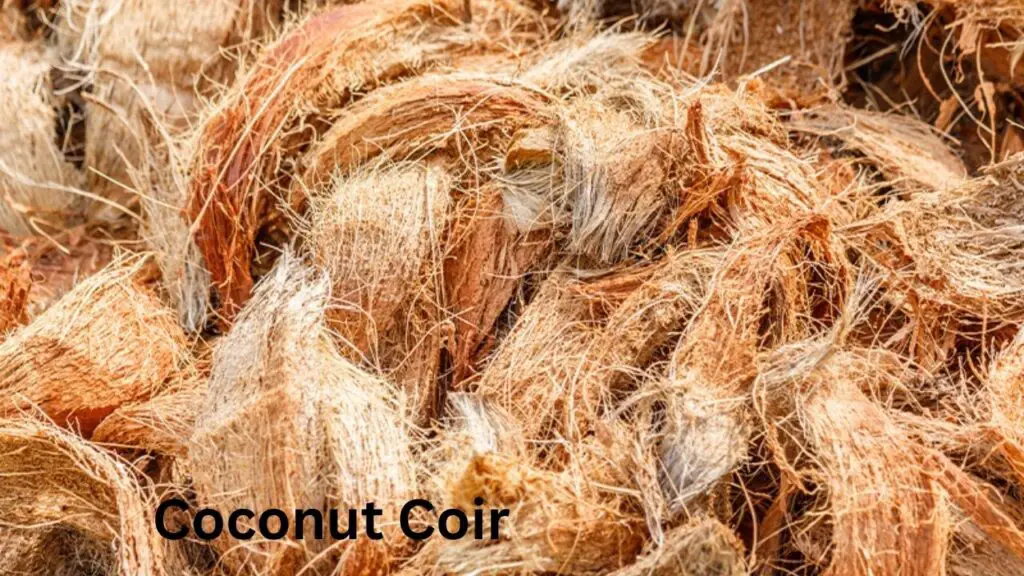
Coconut coir is a versatile material that can greatly enhance your gardening and agriculture practices. To ensure you make the most of its potential, here are some practical tips for using coconut coir effectively.
Firstly, it’s important to properly hydrate the coconut coir before use. This can be done by soaking the compressed coir bricks or blocks in water until they fully expand. The ideal moisture content should be around 50-60%. Once hydrated, fluff the coir to break up any clumps and ensure it is evenly moist throughout.
For container gardening, coconut coir can be used as a stand-alone growing medium or mixed with other materials like perlite or vermiculite. A recommended ratio is one part coir to one part perlite or vermiculite. This mixture provides excellent water retention, aeration, and drainage properties, promoting healthy root development.
In larger-scale applications, such as raised beds or farming, coconut coir can be used as a soil amendment. Mix it thoroughly with the existing soil, aiming for a 30% coconut coir to 70% soil ratio. This will improve the soil structure, nutrient retention, and water-holding capacity, leading to improved plant growth and productivity.
Coconut coir is also a great addition to compost piles. Its high carbon content improves the carbon-nitrogen ratio, allowing for faster decomposition and better compost quality. Simply add shredded coconut coir to the compost bin along with other organic materials, such as kitchen scraps and yard waste, and regularly turn the pile to ensure proper aeration.
When using coconut coir for seed starting, it’s important to note that it has low nutrient content. Therefore, it’s recommended to add a balanced organic fertilizer or nutrient-rich compost when sowing seeds or transplanting seedlings into coconut coir. This will provide the necessary nutrients for healthy plant growth.
In conclusion, following these practical tips will help you maximize the benefits of coconut coir in your gardening and agriculture endeavors. From proper hydration to ideal mixing ratios and nutrient supplementation, using coconut coir correctly can greatly improve soil quality, water management, and overall plant health. Experiment with different applications and see how this sustainable alternative enhances your gardening and farming practices.
Success Stories: Real-Life Experiences of Using Coconut Coir in Different Settings
When it comes to gardening, coconut coir has gained recognition for its amazing benefits and versatility. Gardening enthusiasts all over the world have shared their real-life experiences and success stories of using coconut coir in various settings.
One gardener, Sarah, transformed her backyard into a thriving vegetable garden by incorporating coconut coir into the soil. She was amazed by how the coir improved the soil’s water retention capabilities, keeping her plants adequately hydrated during hot summer days. Sarah also noticed that her plants grew healthier and stronger, producing a bountiful harvest. She believes that coconut coir played a significant role in providing the perfect growing environment for her plants.
Another success story comes from Mike, an urban gardener who relies on hydroponics for his indoor garden. He switched from using traditional growing media to coconut coir and was astounded by the results. Not only did the coir retain water efficiently, but it also enhanced the aeration and drainage of his hydroponic system. Mike observed that his plants’ root development improved, leading to faster growth and better nutrient absorption. He now considers coconut coir an essential component of his hydroponic setups and highly recommends it to fellow hydroponic enthusiasts.
These real-life experiences highlight the effectiveness of coconut coir in different gardening settings. As more and more gardeners embrace its benefits, coconut coir continues to make a mark in the world of gardening, proving to be a game-changer for plant growth and success.
• Coconut coir improves soil water retention capabilities
• Plants grown with coconut coir are healthier and stronger
• Coconut coir provides the perfect growing environment for plants
• Coconut coir enhances aeration and drainage in hydroponic systems
• Root development and nutrient absorption improve with the use of coconut coir in hydroponics
What is the composition of coconut coir?
Coconut coir is derived from the fibrous husk of coconuts. It primarily consists of lignin, cellulose, and hemicellulose.
How does coconut coir benefit gardening and agriculture?
Coconut coir has excellent water retention capabilities, enhances soil aeration and drainage, and provides essential nutrients to plants. It also acts as a natural weed and pest control solution.
In what other applications can coconut coir be used?
Coconut coir is versatile and can be used in various applications such as erosion control, landscaping, bedding for livestock, and as a substrate for mushroom cultivation.
How does coconut coir contribute to environmental sustainability?
Coconut coir is a sustainable alternative to traditional peat moss, reducing the demand for peat extraction which harms natural ecosystems. It is also biodegradable and renewable.
Does coconut coir provide nutrients for plant growth?
Yes, coconut coir contains essential nutrients like potassium, magnesium, and copper, which are beneficial for plant growth and development.
Can coconut coir help with water conservation?
Absolutely. Coconut coir has excellent water retention capabilities, reducing the frequency of irrigation and promoting water conservation.
How does coconut coir enhance soil aeration and drainage?
Coconut coir has a fibrous structure that helps improve soil porosity, allowing for better airflow and water drainage.
Can coconut coir be used as a pest and weed control solution?
Yes, coconut coir acts as a natural deterrent for pests and can suppress weed growth when used as a mulch or in potting mixtures.
Are coconut coir products durable and long-lasting?
Yes, coconut coir products are known for their durability and longevity. They can withstand repeated use and maintain their integrity over time.
What are the different types of coconut coir available?
The different types of coconut coir include coco pith, coco fiber, and coco chips. Each type has varying textures and uses in different gardening and agricultural applications.
How can one source high-quality coconut coir?
To source high-quality coconut coir, it is recommended to purchase from reputable suppliers who follow sustainable and ethical practices. It is also important to consider the desired type and grade of coconut coir for specific needs.
Why is proper preparation and storage of coconut coir important?
Proper preparation and storage of coconut coir ensure that it is free from contaminants and retains its moisture content. This helps maintain its effectiveness in various applications.
What are some practical tips for using coconut coir in gardening and agriculture?
Some practical tips include proper rehydration of coconut coir before use, using it as a growing medium or soil amendment, and incorporating it into compost to enhance nutrient content.
Do you have any success stories of using coconut coir in different settings?
Yes, there are numerous success stories from gardeners, farmers, and horticulturists who have experienced improved plant growth, increased yields, and overall better soil health by incorporating coconut coir into their practices.

